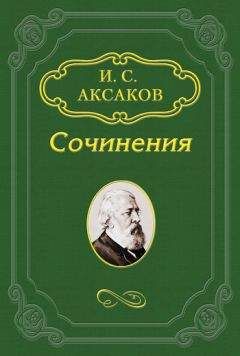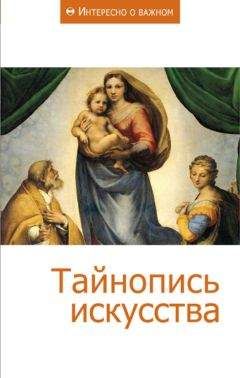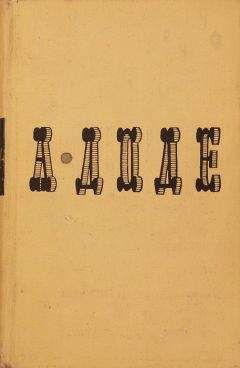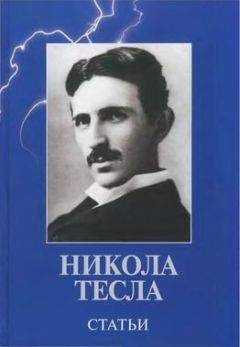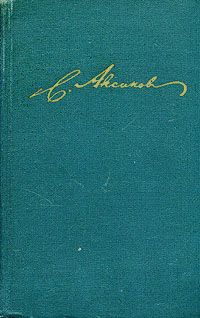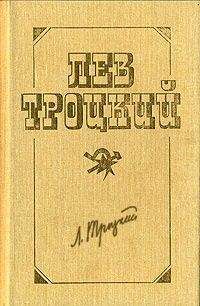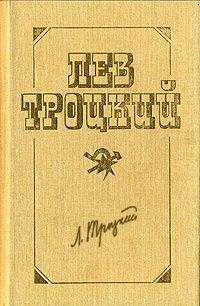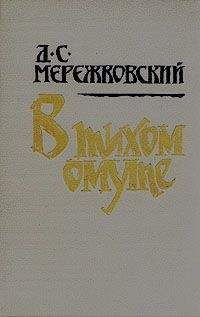Алексей Минченков - Glimpses of Britain. Reader

Все авторские права соблюдены. Напишите нам, если Вы не согласны.
Описание книги "Glimpses of Britain. Reader"
Описание и краткое содержание "Glimpses of Britain. Reader" читать бесплатно онлайн.
Хрестоматия содержит подборку статей из современных газет и журналов, иллюстрирующих многие темы, рассматриваемые в основных главах пособия Glimpses of Britain. Статьи расположены в произвольном порядке, они не адаптировались и не сокращались, был полностью сохранен авторский стиль и пунктуация. Таким образом, статьи представляют разный уровень сложности, в зависимости от индивидуального стиля автора.
Puritanism is perhaps the least understood of any political movement in European history. In popular mythology it is reduced to a joyless cult of self-denial, obsessed by stripping churches and banning entertainment: a perception which removes it as far as possible from the conspicuous consumption of Republican America. But Puritanism was the product of an economic transformation.
In England in the first half of the 17th century, the remnants of the feudal state performed a role analogous to that of social democracy in the second half of the 20th. It was run, of course, in the interests of the monarchy and clergy. But it also regulated the economic exploitation of the lower orders. As RH Tawney observed in Religion and the Rise of Capitalism (1926), Charles I sought to nationalise industries, control foreign exchange and prosecute lords who evicted peasants from the land, employers who refused to pay the full wage, and magistrates who failed to give relief to the poor.
But this model was no longer viable. Over the preceding 150 years, “the rise of commercial companies, no longer local, but international” led in Europe to “a concentration of financial power on a scale unknown before” and “the subjection of the collegiate industrial organisation of the Middle Ages to a new money-power”. The economy was “swept forward by an immense expansion of commerce and finance, rather than of industry”. The kings and princes of Europe had become “puppets dancing on wires” held by the financiers.
In England the dissolution of the monasteries had catalysed a massive seizure of wealth by a new commercial class. They began by grabbing (“enclosing”) the land and shaking out its inhabitants. This generated a mania for land speculation, which in turn led to the creation of sophisticated financial markets, experimenting in futures, arbitrage and almost all the vices we now associate with the Age of Enron.
All this was furiously denounced by the early theologists of the English Reformation. The first Puritans preached that men should be charitable, encourage justice and punish exploitation. This character persisted through the 17th century among the settlers of New England. But in the old country it didn’t stand a chance.
Puritanism was primarily the religion of the new commercial classes. It attracted traders, money lenders, bankers and industrialists. Calvin had given them what the old order could not: a theological justification of commerce. Capitalism, in his teachings, was not unchristian, but could be used for the glorification of God. From his doctrine of individual purification, the late Puritans forged a new theology.
At its heart was an “idealisation of personal responsibility” before God. This rapidly turned into “a theory of individual rights” in which “the traditional scheme of Christian virtues was almost exactly reversed”. By the mid-17th century, most English Puritans saw in poverty “not a misfortune to be pitied and relieved, but a moral failing to be condemned, and in riches, not an object of suspicion… but the blessing which rewards the triumph of energy and will”.
This leap wasn’t hard to make. If the Christian life, as idealised by both Calvin and Luther, was to concentrate on the direct contact of the individual soul with God, then society, of the kind perceived and protected by the medieval church, becomes redundant. “Individualism in religion led… to an individualist morality, and an individualist morality to a disparagement of the significance of the social fabric.”
To this the late Puritans added another concept. They conflated their religious calling with their commercial one. “Next to the saving of his soul,” the preacher Richard Steele wrote in 1684, the tradesman’s “care and business is to serve God in his calling, and to drive it as far as it will go.” Success in business became a sign of spiritual grace: providing proof to the entrepreneur, in Steele’s words, that “God has blessed his trade”. The next step follows automatically. The Puritan minister Joseph Lee anticipated Adam Smith’s invisible hand by more than a century, when he claimed that “the advancement of private persons will be the advantage of the public”. By private persons, of course, he meant the men of property, who were busily destroying the advancement of everyone else.
Tawney describes the Puritans as early converts to “administrative nihilism”: the doctrine we now call the minimal state. “Business affairs,” they believed, “should be left to be settled by business men, unhampered by the intrusions of an antiquated morality.” They owed nothing to anyone. Indeed, they formulated a radical new theory of social obligation, which maintained that helping the poor created idleness and spiritual dissolution, divorcing them from God.
Of course, the Puritans differed from Bush’s people in that they worshipped production but not consumption. But this is just a different symptom of the same disease. Tawney characterises the late Puritans as people who believed that “the world exists not to be enjoyed, but to be conquered. Only its conqueror deserves the name of Christian.”
There were some, such as the Levellers and the Diggers, who remained true to the original spirit of the Reformation, but they were violently suppressed. The pursuit of adulterers and sodomites provided an ideal distraction for the increasingly impoverished lower classes.
Ronan Bennett’s excellent new novel, Havoc in its Third Year, about a Puritan revolution in the 1630s, has the force of a parable. An obsession with terrorists (in this case Irish and Jesuit), homosexuality and sexual licence, the vicious chastisement of moral deviance, the disparagement of public support for the poor: swap the black suits for grey ones, and the characters could have walked out of Bush’s America.
So why has this ideology resurfaced in 2004? Because it has to. The enrichment of the elite and impoverishment of the lower classes requires a justifying ideology if it is to be sustained. In the US this ideology has to be a religious one. Bush’s government is forced back to the doctrines of Puritanism as an historical necessity. If we are to understand what it’s up to, we must look not to the 1930s, but to the 1630s.
History washes up ancient bathroom
by Martin Wainwright
The Guardian, May 19, 2005
Five blocks of stone prised out of a castle wall are thought to have revealed what may be the first bathroom built in Britain after the long and grubby interlude of the Middle Ages. Archaeologists are carrying out a preliminary search of two chambers unearthed this week in a long-abandoned outbuilding at Bolsover in Derbyshire, where Sir William Cavendish, a fastidious aristocrat, is known to have started a fashion for “bathing rooms” after the English civil war. Inside the room, a narrow slit running round all four walls shows where flagstones once formed a floor at a level leaving ample room for a sunken bath. The main chamber also has a recess at one end the width of lead piping, which tallies with a similar feature on a well house in the castle garden immediately outside. “It is looking very promising,” said John Burditt of English Heritage, which is gradually restoring the castle – a grandiose mixture of mansion and fortress which dominates the pit village constituency of leftwing Labour MP Denis Skinner. “Another piece of evidence is the smaller second chamber which has blackened stone on one wall,” Mr Burditt said. “The historical record describes how Sir William’s bath could be filled with hot water. This room may well turn out to have been the boiler house.” Sir William’s experiments in hygiene were inspired in part by his exile on the continent, following Oliver Cromwell’s victory. In Europe, washing was generally more sophisticated than in England. But Sir William is also thought to have been keen to help his first wife, Lady Madge, overcome her problems in conceiving. “Immersion in warm water was thought to be a way of treating infertility at the time,” said Mr Burditt. “Cavendish had the resources and room to make this possible on a large scale.” The 17th-century bathing room craze was the first real revival in Britain of the fastidious habits of the Romans, whose elaborate public baths were left in ruins during the Dark Ages. Bolsover’s hidden rooms, which were sealed over a century ago when they fell into disrepair and became structurally dangerous, are likely to go on show after a full archaeological survey this summer. The find, if the bathing theory is confirmed, will add another laurel to Britain’s considerable plumbing heritage, which famously includes the perfector of the modern flush lavatory, Thomas Crapper. The first bathroom to be installed in the US was also the work of a man who knew Bolsover well, the 18th-century Leeds architect Benjamin LaTrobe whose other commissions included collaborative design on the White House.
Letter from Victoria points to affair with Brown
by Stephen Bates
The Guardian, December 16, 2004
A newly discovered letter from Queen Victoria, revealing her innermost feelings for her Highland servant John Brown, reignited speculation yesterday that their relationship was more than platonic. The handwritten note, uncovered by accident by a PhD student in the family archives of Lord Cranbrook, one of Queen Victoria’s ministers, in the Suffolk record office indicates just how distraught she was when Brown died unexpectedly in March 1883. The letter was revealed in an article in History Today magazine by Bendor Grosvenor, its discoverer. It is not the magazine’s first royal scoop – it revealed how the royal doctor hastened the death of George V in 1936 so that it could be announced in the morning papers. Queen Victoria wrote – characteristically in the third person – to Cranbrook two days after the former ghillie’s death: “The Queen has let her pen run on… The Queen is not ill, but terribly shaken and quite unable to walk… missing more than ever her dear faithful friend’s strong arm.” The letter is written in the queen’s nearly indecipherable scrawl on black-bordered note paper and speaks of her “present, unbounded grief for the loss of the best, most devoted of servants and truest and dearest of friends.” Speculation about Queen Victoria’s 20 year relationship with Brown, following the early death of her husband Albert in 1861, started in court circles almost as soon as the unlikely friendship itself did when the queen was in her mid-forties. Victoria’s daughters joked about “Mama’s lover”, and the then Duke of Edinburgh (the queen’s second son) claimed he had been evicted from Buckingham Palace because he refused to shake the servant’s hand. A court source, probably the dean of Windsor, told Lord Derby, foreign secretary, that Brown had taken to sleeping in the room adjoining the queen’s bedroom, “contrary to etiquette and even decency.” The queen’s letter reads: “Perhaps never in history was there so strong and true an attachment, so warm and loving a friendship between the sovereign and servant… Strength of character as well as power of frame – the most fearless uprightness, kindness, sense of justice, honesty, independence and unselfishness combined with a tender, warm heart… made him one of the most remarkable men. The Queen feels that life for the second time is become most trying and sad to bear deprived of all she so needs… the blow has fallen too heavily not to be very heavily felt.” While the letter does not conclusively reveal whether the pair were lovers in the modern sense – the heightened sentiment was not unknown in the queen’s correspondence – it does show a strength of feeling that was disguised when her diaries were edited by her daughter Beatrice after Victoria’s death. Grosvenor believes the friendship was more than platonic. “The similarities between Victoria’s treatment of Albert and Brown in death are too numerous to ignore,” he writes. When the queen died, she left instructions that a lock of Brown’s hair, his photograph, a handkerchief and some letters should be placed in her coffin alongside mementoes of Albert. Any secrets in the letters will presumably remain firmly in the Queen’s mausoleum.
Конец ознакомительного фрагмента.
Текст предоставлен ООО «ЛитРес».
Прочитайте эту книгу целиком, купив полную легальную версию на ЛитРес.
Безопасно оплатить книгу можно банковской картой Visa, MasterCard, Maestro, со счета мобильного телефона, с платежного терминала, в салоне МТС или Связной, через PayPal, WebMoney, Яндекс.Деньги, QIWI Кошелек, бонусными картами или другим удобным Вам способом.
Подписывайтесь на наши страницы в социальных сетях.
Будьте в курсе последних книжных новинок, комментируйте, обсуждайте. Мы ждём Вас!
Похожие книги на "Glimpses of Britain. Reader"
Книги похожие на "Glimpses of Britain. Reader" читать онлайн или скачать бесплатно полные версии.
Мы рекомендуем Вам зарегистрироваться либо войти на сайт под своим именем.
Отзывы о "Алексей Минченков - Glimpses of Britain. Reader"
Отзывы читателей о книге "Glimpses of Britain. Reader", комментарии и мнения людей о произведении.







